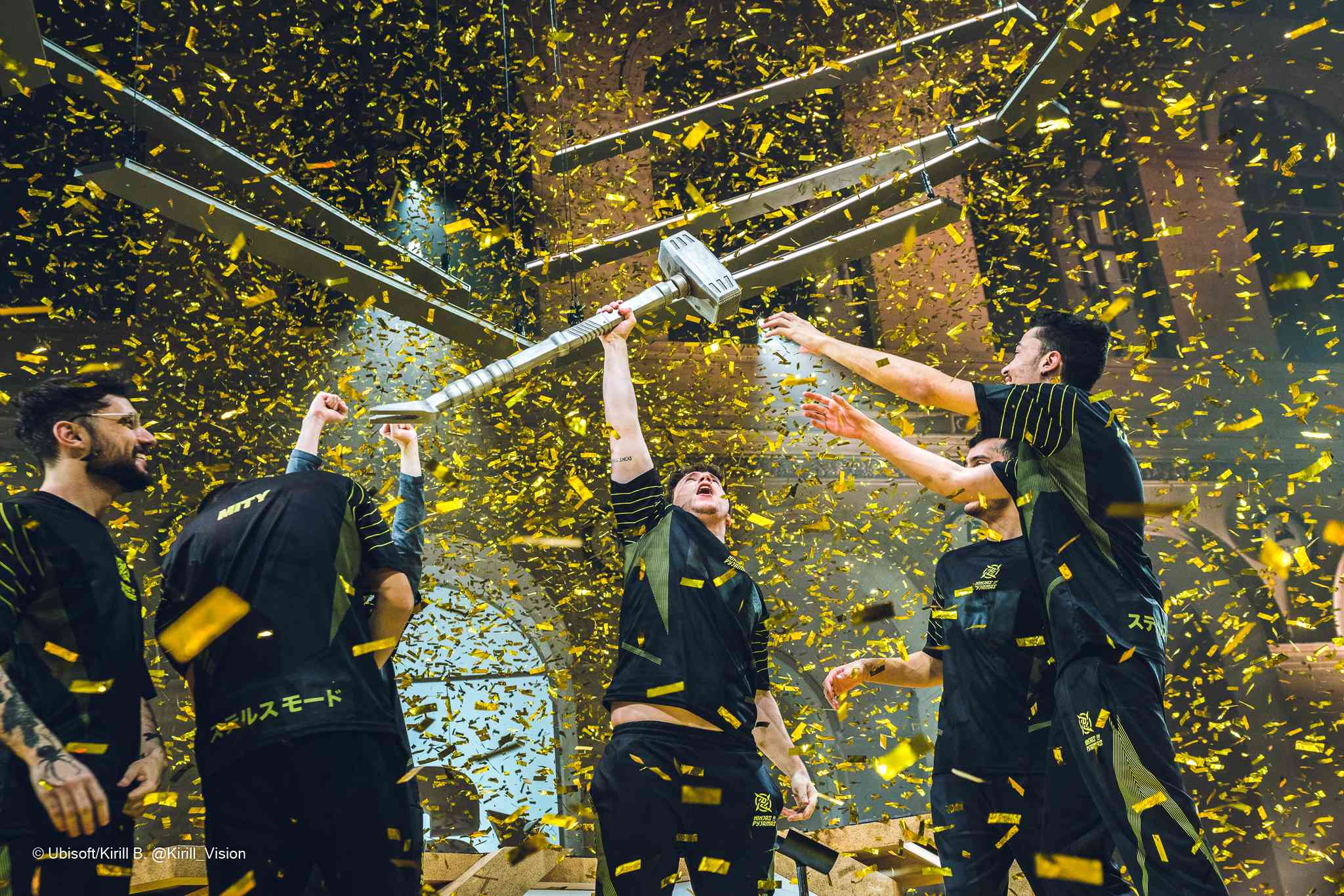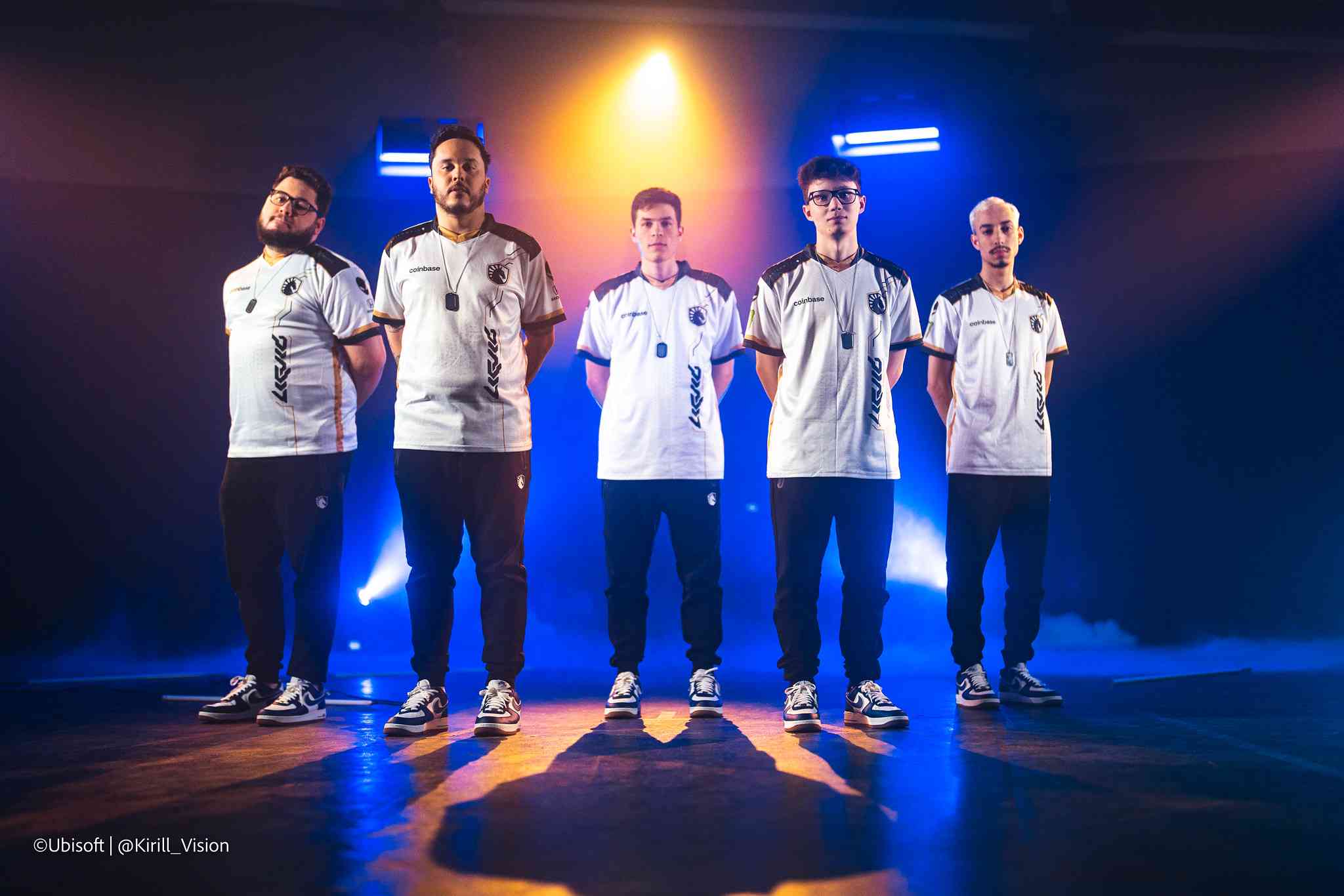The international championship becomes more and more green and yellow with each edition, now equaling the EU region in titles but surpassing it in competition finalists. We take a look back at Brazil’s storied history at the Six Major.
The Six Major Atlanta has concluded, and unprecedented achievements have been made, all related to Brazil, which has adopted the international competition as its own; despite a slow start in its history.
Contents
Brazil’s performance outside of the Major
Among the major international tournaments with a guaranteed place in the official annual Rainbow Six calendar, we have the Six Invitational, the Six Major, and the now-extinct Pro League. Out of all of these, The ESL tournament was the least favorable for Brazilian teams. Starting with Pro League Season 4, Brazil was not yet classified as a region, but as the country was dominant in both the Pro League and Challenger League, it was always treated as the “Brazilian” region.
Brazil’s first engagement saw the Black Dragons team, led by André “NESKWGA” Oliveira, manage to reach the grand final, but the defeat was bitter, with BD falling against PENTA with a 10-1 round score. Throughout the Pro League’s history, two editions had their finals in Brazil; Season 6 ended with Gustavo “Psycho” Rigal’s Black Dragons losing to Juhani “Kantoraketti” Toivonen’s ENCE, and also in Season 8, which concluded with Leonardo “Astro” Luis’s Faze Clan losing to Niclas “Pengu” Mouritzen and Kantoraketti’s G2.
In total, in participations, Brazil had four finalists over six editions, with only one of these ending in a title for Team Liquid and NESKWGA against PENTA in Atlantic City. Overall, the EU region dominated the Pro League; with one finalist in each edition, a regional final in the first edition, and a total of eight victories, against one for LATAM and one for North America. Among finalists, LATAM ranks third, behind North America with five finalists.
 NIP celebrating their first international title at the Six Invitational 2021. Credit: Ubisoft/Kirill_Vision
NIP celebrating their first international title at the Six Invitational 2021. Credit: Ubisoft/Kirill_VisionIn the Six Invitational, Brazil also hasn’t been as dominant as they’d like, with only one title (making them the third region with the most titles) and only four finals, behind North America and Europe with 5 finalists each. Furthermore, in 2023, Europe tied with North America with three titles, making it even more challenging for Brazil to catch up.
However, the story is entirely different in the Six Major, where Brazil now boasts significant advantage in some aspects.
The Six Major and Brazil: A brief history
The Six Major started in 2018, with the first edition held in Paris. At that time, the championship aimed to be a shadow of the Six Invitational; the format was similar, both in terms of qualification and competition bracketing. However, the format allowed only one team to be the Six Major champion in the season. Given the packed schedule of competitions (two Pro League finals and the Six Invitational completed the annual calendar), it left no space for another Six Major edition.
The main point of the Six Major was to reward teams in the long run. A year before its first edition, the possibilities for a title were through the Six Invitational or the Pro League, which was a very short shot of only two days, and the winner had to go through only three opponents (besides the final being BO1). The Major’s method of a long-term tournament is respected to this day.
With ESL stepping down from managing Rainbow Six championships, there was an opening for a new calendar and a revamp of the Six Major format. However, during the transition of organizers, the pandemic prevented on-site tournaments, and during Year Five of competitive Rainbow Six, the Six Major tournaments were only regional. Therefore, the champions and finalists during this period are not counted in the Six Major’s history.
After the return of on-site international tournaments, the Six Invitational 2021 took place, providing a preview of what Rainbow Six would be from that moment on. The first Six Major after the break was held in Mexico, with a brilliant performance by Team oNe. The Brazilian team, led by Karl “Alem4o” Zarth, went undefeated and secured Brazil’s first Six Major title. In the next edition, Brazil had another impressive campaign, winning the final in Sweden, with FaZe Clan, led by Leonardo “Astro” Luis, defeating Ninjas in Pyjamas.
 Team Liquid media day at the Six Major Jönköping. Credit: Ubisoft/Kirill_Vision
Team Liquid media day at the Six Major Jönköping. Credit: Ubisoft/Kirill_VisionThe Six Major had a rough start in 2022, with an unfair situation unfolding at the Six Major Charlotte ‘ three Brazilians playing from Mexico with high ping after visa issues for the US, which left Brazil without representatives in the grand final. However, in Berlin, the region returned to the grand final with FaZe Clan, the results were the same at the following Major in Jönköping with Team Liquid: runner-up to an EU team, namely Rogue and BDS, respectively.
At this point, Brazil was in second place among teams with the most titles in the competition, with Europe leading by four titles. In the competition between finalists, Europe had six finalists, Brazil had five, and North America had only three.
Then the scenario changed, as after the Six Invitational 2023, BLAST became the new championship organizer.
New format, same dominance
With a new and surprising official calendar, Rainbow Six now features two Six Major tournaments per year, one at the beginning of the season and the other after three months of rest and an open calendar for other tournaments.
But what’s the major difference between the previous championships and today? The main difference is undoubtedly tactics, as teams have improved both in skill quality and game sense to minimize the chances of a strategy yielding poor results.
Another significant difference lies in the calendar. Previously, during the ESL period, a less victorious period for Brazil in history, there were many championships in succession, some with short formats and others that leaned more towards the mental aspect. Besides, the regional phases were longer, respecting the league and playing against all teams twice, but with fewer teams per region (eight). Today, the period of more rest and study further values well-done work and studying all actions within the game. This doesn’t mean that teams from other regions do not know how to study the game or have declined in skill; rather, the Brazilians have handled this preparation time well and have built something even greater. The region, even without results, always came close to the title, and now it comes back stronger, generating titles.
The 2023 competition between Brazil and Europe at the Six Major is over. The regions are tied in titles, that’s a fact. Still, the only two-time champion of the tournament is Brazilian. The region with the most dominant international finals (both teams from the same region) is Brazil, with three finals. The region with the most finalists is now Brazil, by a wide margin, with nine finalists, while Europe has five, and North America has three.
Brazil may not have won the Pro League, and may be distant in the race for the Six Invitational, but the region can proudly claim the Six Major belongs to them.


